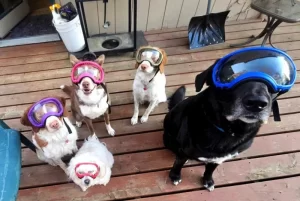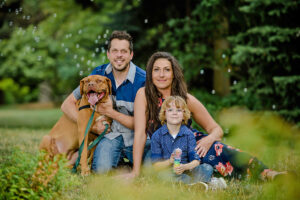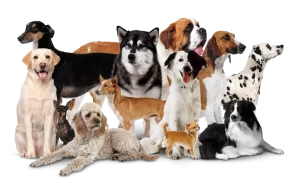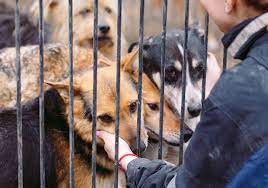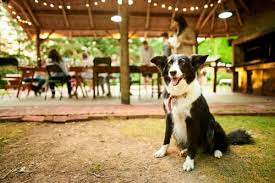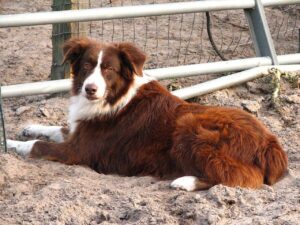Overfeeding your dog might feel like an act of love, but are you offering them more food than they need? Overfeeding has become a common issue among pet owners, often leading to serious health problems. Understanding the signs and adjusting your dog’s diet can make a world of difference in their overall welfare.
Understanding Your Dog’s Nutritional Needs
Just like humans, dogs require balanced and specific diets. Factors such as breed, age, and activity level play a significant role in how much food they should eat. Feeding a one-size-fits-all portion often leads to either undernourishment or overfeeding.
Breed-Specific Nutritional Requirements
Each dog breed has distinct dietary needs. For instance, smaller breeds like Chihuahuas generally require fewer calories compared to large breeds like Labradors. Meanwhile, some breeds are predisposed to obesity, necessitating stricter portion control. Feeding your dog according to their breed ensures they have the energy they need without unintended weight gain. Here’s more on controlling diet for overfed pets.
Age and Activity Level Considerations
Puppies, adult dogs, and seniors have vastly different caloric requirements. Active, younger pups burn more energy and need higher food intake, whereas older, less active dogs require fewer calories to avoid weight gain. Additionally, working breeds or dogs that engage in sports may need enhanced diets catering to their activity demands.
Signs Your Dog Is Overeating
Spotting the warning signs of overfeeding can help you course-correct before complications arise.
Weight Gain and Obesity
Weight gain is the most obvious sign your dog is eating too much. A thick layer of fat covering their ribs or a barely visible waistline are red flags. Obesity in dogs increases the risk of severe health conditions. Learn more about the risks of overweight pets.
Frequent Begging and Food-Related Behaviors
It might seem counterintuitive, but dogs can show persistent begging even when they’re being overfed. This can stem from boredom or a misguided association between food and attention. Scavenging behaviors and unusual food aggression may also crop up in overfed dogs.
Digestive Issues
Overfeeding can lead to digestive problems such as diarrhea, vomiting, or bloating. Dogs that seem consistently bloated or exhibit signs of stomach discomfort might be getting too much food. These digestive symptoms often act as red flags.
The Impact of Overfeeding on Your Dog’s Health
Overfeeding isn’t just about your dog tipping the scales. It can negatively affect every aspect of their health over time.
Increased Risk of Chronic Diseases
Obese dogs are significantly more prone to chronic conditions, including heart disease, diabetes, and joint problems like arthritis. Excessive weight puts stress on their organs, leading to decreased overall function. Find out more about obesity-related diseases in dogs.
Reduced Quality of Life
Carrying extra weight limits a dog’s mobility, energy, and overall enjoyment of life. Many dogs struggle to perform basic activities they used to enjoy, like running or climbing stairs. A heavier body makes every movement more taxing.
How to Adjust Your Dog’s Diet
Adjusting your dog’s diet properly ensures they get back on the path to health without unnecessary stress.
Consulting a Veterinarian
Before making any major dietary changes, consult your veterinarian. A vet can assess your dog’s unique needs and recommend a tailored meal plan. They may also monitor conditions caused by overfeeding, ensuring these are addressed as you manage their diet.
Portion Control and Feeding Guidelines
Accurate portion sizes are vital to your dog’s health. Use measuring cups or a kitchen scale to provide the correct amount of food. Check the feeding guidelines on dog food packaging as a baseline but consider your dog’s specific energy needs. If transitioning to new food, do so gradually to avoid upsetting their stomach. For easy tips, read this guide on switching diets safely.
Conclusion
Overfeeding is a common health hazard for dogs, but it’s one that owners can address effectively. By understanding your dog’s nutritional needs, recognizing signs of overeating, and making thoughtful adjustments to their meals, you can help your furry friend maintain a healthy, active, and happy life. Always monitor your dog’s weight and consult a vet when in doubt—a balanced diet is one of the best gifts you can give your companion!



![The Ultimate Guide to Road Tripping with Your Dog [2025 Update]](https://bellabeanupdate.com/wp-content/uploads/2025/05/pexels-photo-1143369-300x209.jpeg)

